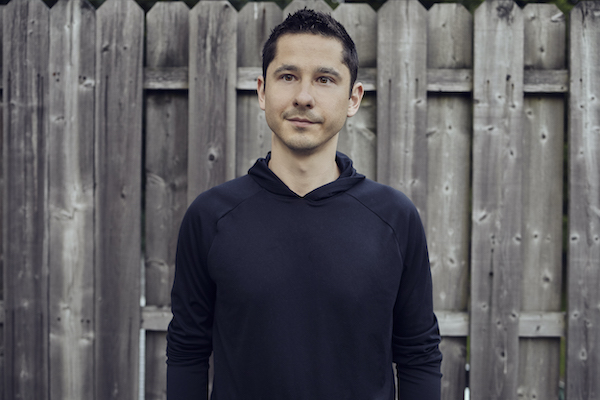Jan 13, 2026 2:09 PM
More Trump-Kennedy Center Cancellations
The fallout from the renaming of the John F. Kennedy Center for the Performing Arts to include President Donald…

Eldar Djangirov’s latest album is titled Rhapsodize.
(Photo: David Patino)To display Promethean chops is pianist Eldar Djangirov’s long-established default basis of operations, and his new, self-released album, Rhapsodize (Twelve Tone Resonance), is no exception. On this program of originals and covers, the pianist—joined in the studio by bassist Raviv Markovitz and drummer Jimmy Macbride—seamlessly blends the languages of classical and jazz.
“It represents all 12 tones on the keys, and the various resonances you can capture and replicate in how you want the flow of your song to sound,” Djangirov said about the name of his label. “They can be melodic, or harmonic, or rhythmic—or the heart.”
Then he addressed the album title. “Literally, a rhapsody is to speak about something with great enthusiasm, which I feel encapsulates the entire album,” he said. “I’m interested in many different aspects of music. I want to incorporate them in a way that’s genuine to me.”
Synth-generated backgrounds complement the melancholic-to-joyful emotions contained in the funky title track and the gospel-meets-classical “In July,” both original tunes. Elsewhere, the pianist delivers a reflective reading of “Willow Weep For Me” and creates an operatic arc for Soundgarden’s “Black Hole Sun.”
The trio operates with remarkable precision and interplay throughout Rhapsodize. “It’s a never-ending dance, a micro-adjustment on a millisecond level that happens with three musicians who focus on their placement in context with each other,” he said.
“Eldar’s technical mastery is second to no one, but what’s blown me away is his multifaceted approach and ability to evoke emotion in so many different worlds,” Markovitz said.
In conversation, Djangirov breaks down complex ideas to fundamental components, an attribute he’s deployed in taking control of his musical production since his 2015 trio album, World Tour Vol. 1. Djangirov sold that album via his website, with selected tracks posted on YouTube. Now he’s “further circumventing the system” by releasing Rhapsodize—and, last December, Letter To Liz, which showcased his meditations on a cohort of Great American Songbook standards—on a variety of platforms.
The databases and infrastructure that Djangirov has accumulated over the years are helping him withstand the enforced isolation and gig cancellations caused by the COVID-19 pandemic. He’s generating income from increased online lessons, the membership platform Patreon, YouTube royalties and his catalog.
Key Madness Duo, a plugged-in project with drummer Ludwig Afonso, recently issued a live EP, and as of early April, the keyboardist was fast-tracking another electronic recording.
“It’s really been therapy,” Djangirov said of this phase of his creative process. “So much about the solitude is meditative and therapeutic; I think the music will reflect that.” DB
This story originally was published in the June 2020 issue of DownBeat.

Belá Fleck during an interview with Fredrika Whitfield on CNN.
Jan 13, 2026 2:09 PM
The fallout from the renaming of the John F. Kennedy Center for the Performing Arts to include President Donald…

Peplowski first came to prominence in legacy swing bands, including the final iteration of the Benny Goodman Orchestra, before beginning a solo career in the late 1980s.
Feb 3, 2026 12:10 AM
Ken Peplowski, a clarinetist and tenor saxophonist who straddled the worlds of traditional and modern jazz, died Feb. 2…

The success of Oregon’s first album, 1971’s Music Of Another Present Era, allowed Towner to establish a solo career.
Jan 19, 2026 5:02 PM
Ralph Towner, a guitarist and composer who blended multiple genres, including jazz — and throughout them all remained…

Rico’s Anti-Microbial Instrument Swab
Jan 19, 2026 2:48 PM
With this year’s NAMM Show right around the corner, we can look forward to plenty of new and innovative instruments…

Richie Beirach was particularly renowned for his approach to chromatic harmony, which he used to improvise reharmonizations of originals and standards.
Jan 27, 2026 11:19 AM
Richie Beirach, a pianist and composer who channeled a knowledge of modern classical music into his jazz practice,…